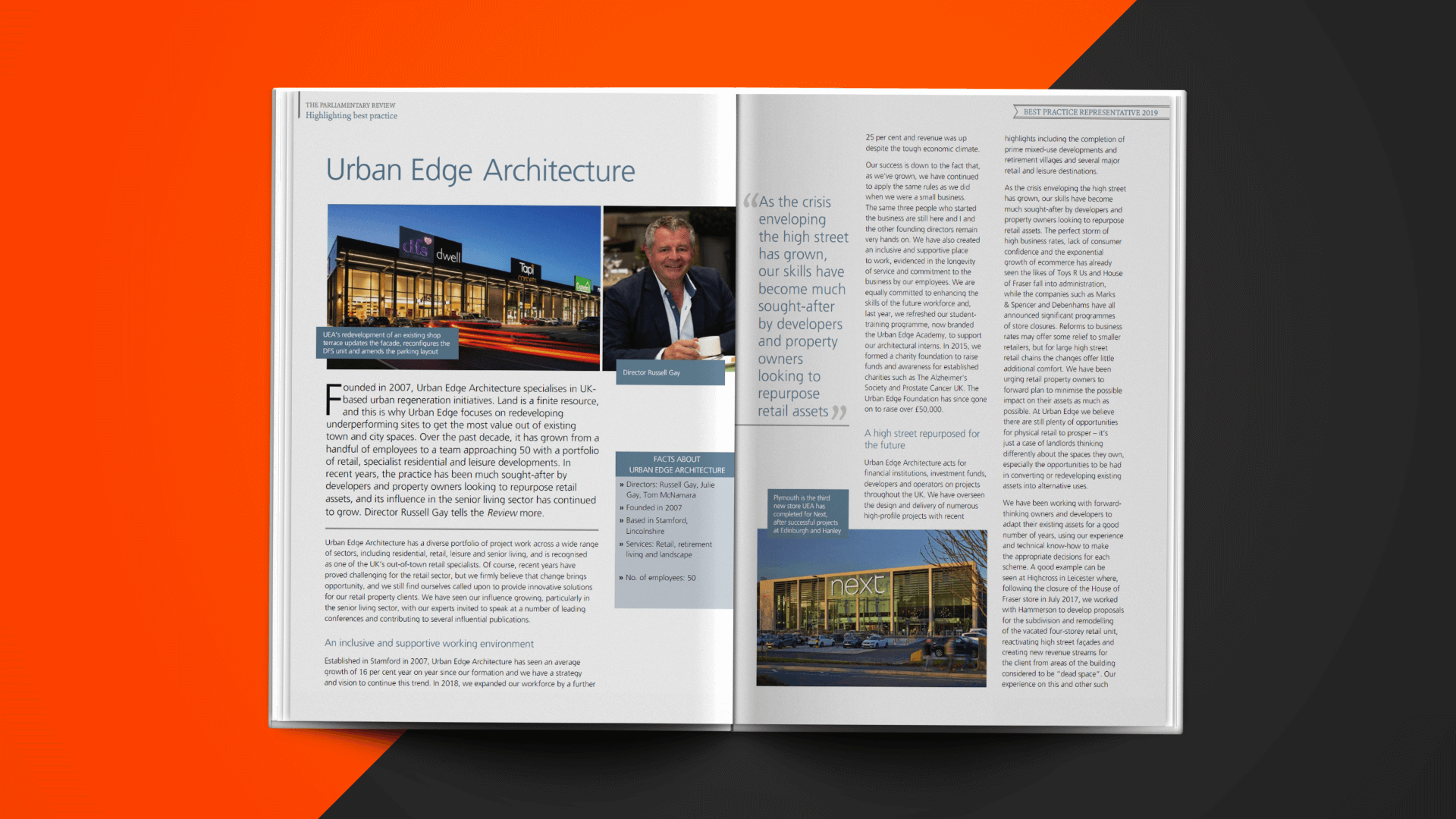Recent years have proved challenging for the retail sector, but at Urban Edge we firmly believe that change brings opportunity and find ourselves called upon to provide innovative solutions for our retail property clients. We have also seen our influence growing in the sector, with our retail experts invited to share their in-depth knowledge within a number of influential forums and journals.
Earlier this year, the Parliamentary Review editorial committee identified Urban Edge as an outstanding leader in its field and Director Russell Gay was invited by former Conservative Communities Secretary Lord Pickles to contribute to the Review’s 2019 edition. The Parliamentary Review is an esteemed annual journal that shares best practice amongst policy makers and business leaders.
Russell took the opportunity to highlight the continuing plight of the UK’s high streets and how, as the crisis has grown, our skills have become much sought after by developers and property owners looking to repurpose retail assets.
Writing in the Parliamentary Review, Russell says: “We have been urging retail property owners to forward plan to minimise the possible impact on their assets as much as possible. At Urban Edge we believe there are still plenty of opportunities for physical retail to prosper – it’s just a case of landlords thinking differently about the spaces they own, especially the opportunities to be had in converting or redeveloping existing assets into alternative uses.”
We have been working with forward-thinking owners and developers to adapt their existing assets for a good number of years, using our experience and good technical know-how to make the appropriate decisions for each scheme. A good example can be seen at Highcross in Leicester where, following the closure of the House of Fraser store in July 2017, we worked with Hammerson to develop proposals for the sub-division and remodelling of the vacated four-storey retail unit, reactivating high street façades and creating new revenue streams for the client from areas of the building considered to be ‘dead space’.
Our experience on this and other such projects, has now led us to examine similar schemes for clients and look at repurposing existing units for other complementary uses such as offices, hotels or even retirement housing.
Of course, we also understand that change of use may not suit all landlords. For some, the prospect of getting a retailer in on a long lease may still be more attractive than redevelopment. This is particularly true for ‘out-of-town’ retail, a sector that continues to prove resilient despite the changes impacting the high street – however retail park landlords need to act early to reap the benefits from well-located sites.
Writing in the September 27th issue of Property Week, Urban Edge Director Tom McNamara said: “Retail park landlords do need to be mindful that most major towns now have an oversupply and there will inevitably be winners and losers. As the retail park reinvents itself to suit the 21st century requirements of both tenant and customer, owners of outdated or inadequate retail park assets risk being left behind and losing tenants to better designed, competing sites.”
“Landlords need to think about the bigger picture and serious investment, not merely replacing the glazing and re-painting the cladding. For retail parks to truly distinguish themselves as a destination, this might mean landlords considering a greater integration of asset classes to emulate successful town centres and increase dwell time – coffee, food, playgrounds and crèches, gyms and climbing walls, flexible space for pop-up parks and pop-up food are all elements that can now distinguish a quality retail park.”
Russell has now been invited to attend a high-level event at the House of Commons in late October where he will be raising some of these issues with parliamentarians, policymakers and other senior business leaders.
You can read Russell’s full Parliamentary Review article by clicking here.
